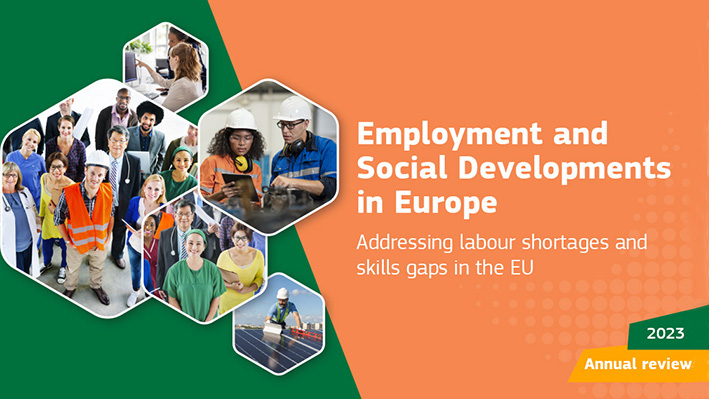
The European Commission’s Employment and Social Developments in Europe (ESDE) report 2023 shows that despite the impact of Russia's invasion of Ukraine, the EU economy has continued to grow and employment is at a record high.
However, challenges remain with a low labour market representation of certain groups. Youth unemployment is still high, and vulnerable groups such as women or persons with a disability are still underrepresented in the labour market. Companies face labour shortages, and both employers and workers to need to adapt to evolving skill requirements, including for the green and digital transitions.
Social funding for skills
As part of the European Year of Skills, the ESDE report puts a special focus on the analysis of labour shortages and skills gaps, as well as policies, measures, and funding to address them. As Europe’s main instrument for investing in people, the European Social Fund Plus (ESF+) is at the heart of implementing these policies. Investing in adult learning and skills development and training programmes, as well as better job matching with people’s education, experience, and skills is a major area of EU support to the Member States, Through the ESF+ and the Recovery and Resilience Facility, the EU budget and Next Generation EU provide €64.8 billion to support skills development.
Breaking barriers to employment
The ESF+ also provides critical support towards removing barriers to employment, including promoting accessible, affordable, high-quality early childhood education and care that implements the European Care Strategy and the EU’s Work-Life Balance Directive. National ESF+ programmes address the gender employment gap and include youth employment as a priority. ESF+ investments bring increased job opportunities to young people, older people, people with a migrant background, and people with lower educational attainment to tackle labour shortages.
These activities help ensure Member States meet EU 2030 social targets on training, employment and poverty reduction. The ESF+ also promotes collaboration between industry, social partners, and training providers to tackle challenges in skills development – the capacity of social partners and civil society is central to the successful implementation of the ESF+ and the policies it supports.
Examples of Social Funding at Work
The European Social Fund (2014-2020) and the new ESF+ have been working to build a more inclusive and prosperous Europe. Some of their many funded projects include:
- The RAFFAEL project of Italy was such a great relief to families in the Viterbo Province of Italy. With funding from the EU Programme for Employment and Social Innovation (EaSI), the project provided families with the support they needed for a healthy work-life balance.
-
Slovakia’s BLUESS project supported the development of a national strategy to equip low-skilled adults with basic skills. The project also developed techniques to assess people’s basic skills, and ‘trained the trainers' to deliver these tools and methodologies through group sessions and study visits.
-
The ALMIT project aimed to speed up migrants’ and refugees’ integration into the job market in Austria, Bulgaria, Serbia, and Turkey. With a specific focus on providing linguistic, cultural, and interpersonal skills training, the project prepared migrant jobseekers for success in finding a job as quickly as possible.



